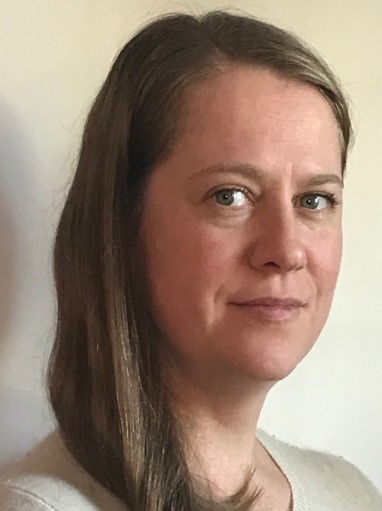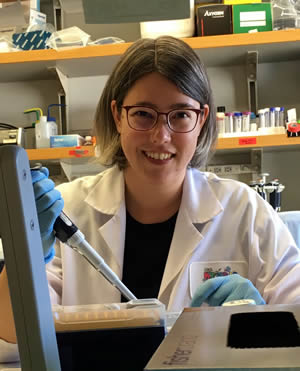2021 RNA Society/Scaringe Post-doctoral Fellow Award Winners
Posted on December 15, 2020
The RNA Society is excited to announce the winners of the 2021 RNA Society/Scaringe Post-doctoral Fellow Award. Two well-deserving awardees were selected this year – Anna Loveland and Kathrin Leppek.
2021 RNA Society/Scaringe Post-doctoral Fellow Award

Dr. Anna Loveland’s postdoctoral research at the University of Massachusetts Medical School under the guidance of Professor Andrei Korostelev has applied Cryo-EM to understand ribosome function, particularly during stress, tRNA decoding and in disease. She has focused on identifying how RelA-bound ribosomes detect the accumulation of deacyl-tRNA during amino acid depletion, and the structural basis by which the ribosome performs proofreading - a process ensuring that correct tRNAs are selected during translation that relies on switching of ribosome conformational states. Her approaches have provided the field “molecular movies” illuminating how RNA decoding occurs, including during initial tRNA selection. Dr. Loveland has recently begun to also study translation in the context of disease and has provided insight into the mechanism whereby di-peptide repeat proteins inhibit translation – a finding relevant to fully understanding the etiology behind ALS and frontal temporal dementia.

Dr. Kathrin Leppek’s research at Stanford University in the lab of Professor Maria Barna has focused on how the ribosome itself functions to regulate translation of specific mRNAs; a process which expands the diversity of gene expression. In particular, she has studied “specialized ribosomes” and how highly flexible rRNA extensions exposed on the outer shell of the ribosome bind to transcripts to control mRNA-specific translation. She has harnessed the evolutionary changes in these expansion sequences to study their importance in translation and has engineered chimeric ribosomes by “humanizing” yeast rRNA to reconstitute mRNA-specific translation regulation. Recent work involves Further, Dr. Leppek has applied genetic and genomic approaches developing a novel ribosome purification/mRNA-interaction strategy to untangle the regulatory role of special ribosomes and applying genetic and genomic methods to identify ~30 proteins in yeast potentially involved in regulating translation start site selection within mRNA 5’ UTRs.
Please congratulate Anna and Kathrin for their research achievements and watch for their presentations detailing their exciting research findings at the 2021 RNA Society Annual Meeting in June.
|